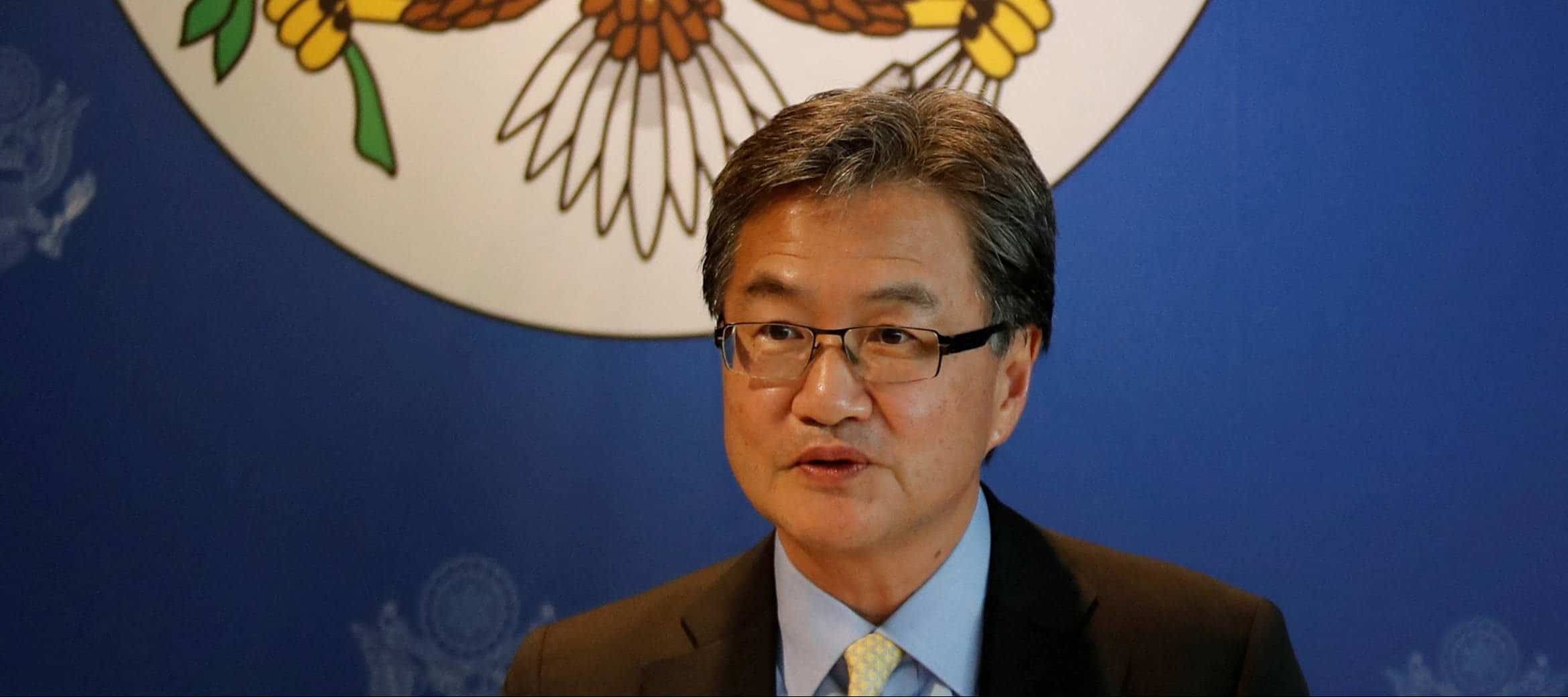U.S. Congress is reviewing a proposal from President Joe Biden to create new security guarantees for three Pacific Island states: the Marshall Islands, Micronesia and Palau.
If Congress passes the Compacts of Free Association by 30 September, they would provide billions of dollars of economic and security assistance for the nations and would deny Beijing access to 5.6 million square kilometers of the Pacific Ocean.
VOA spoke to the chief U.S. negotiator for the compacts, Ambassador Joseph Yun.
VOA: Thanks for joining VOA. What is so critical about these agreements, in light of the U.S. Indo-Pacific strategy?
Yun: Essentially the three island states cover the northern half of the Pacific, and they have control over the seas and over the air and land between Hawaii and the Philippines.
Compact agreements are very unique in U.S foreign policy in that the United States guarantees these island states their security. In return, these island states have given us full defense rights. Not only are we responsible for defending them, we are also responsible for keeping out anyone we – and they – deem not appropriate.
These countries, their citizens, have the right to come and live in the U.S. and work and of course go to school in the U.S without visas, and that’s a unique right. Lastly, the United States helps them out economically through economic assistance. Every 20 years the provision of these economic systems expire, and they have to be renewed.
VOA: What is the agreement that you’ve negotiated?
Yun: So for three countries together, we have offered them US$6.5 billion over the next 20 years. Approximately US$3.3 billion has been devoted to Micronesia, between US$900 million and US$1 billion to Palau and about $2.3 billion to the Marshall Islands.
VOA: How would you describe the pressure on you to close these deals as an increasingly aggressive China pursues its own agenda in the region?
Yun: It would be fruitless for me to deny that China is a big factor in the urgency and the necessity of the deal. The Chinese have been very aggressive in the Pacific. Parts of these three states are critical for the control of the overall Pacific.
VOA: In practical terms, how does the relationship between the United States and these three Pacific Island nations provide an advantage to the U.S. given increased Chinese military presence in the region?
Yun: Through the compacts, we really have a number of key advantages. These countries have opened their land and their seas to the U.S., and so we have built a number of military facilities in this region. In the Marshall Islands, we have an army garrison – army base – essentially in Kwajalein [Atoll] that will track long-range ICBMs that are fired from either Alaska or mostly California. We also have facilities in Palau. Our agreements allow for additional facilities in these countries. These countries have allowed us to deny anyone who may want to come in there.
VOA: The Marshall Islands agreement has been the most difficult to reach. The U.S conducted 67 nuclear tests there between 1946 and 1958, and there are still radioactive isotopes in the water, in the air, in the food sources. What is the U.S. responsibility to the Marshallese people to increase the level of compensation so that they can feel satisfied the U.S. military presence there is worthwhile?
Yun: Forty years ago, the U.S. and Marshall Islands signed an agreement which states that through payment of US$150 million at that time, the U.S. met its legal responsibilities for nuclear damages, and the Marshall Islands accepted that. But we recognise that there is ongoing suffering both in the people and among the people who have been displaced from their homes. We have made it clear that some of the money that we are giving to the Marshall Islands could be spent on development, health care, environment issues of the affected islands within Marshall Islands. We have left that decision to the Marshallese government as they wanted it.
VOA: Are there additional mechanisms in your agreements to make sure that Congress has proper and extensive oversight so that the money can be spent properly?
Yun: Very much so. In the compact trust fund, the decisions are made by the central governments. Ultimately, the U.S. government has the decisive say on how the money is spent.
VOA: What’s your assessment of how soon we’ll see Congress authorise this US$7 billion? Will it happen by the [September 30] deadline so that there is no interruption in the Compacts of Free Association?
Yun: Everyone in Washington – Republicans, Democrats, everyone alike – agrees that our highest foreign policy item is China. If we fail to enact [this], we send the wrong signal not just to the compact states, but worldwide. I’m quite optimistic we can get it done.
